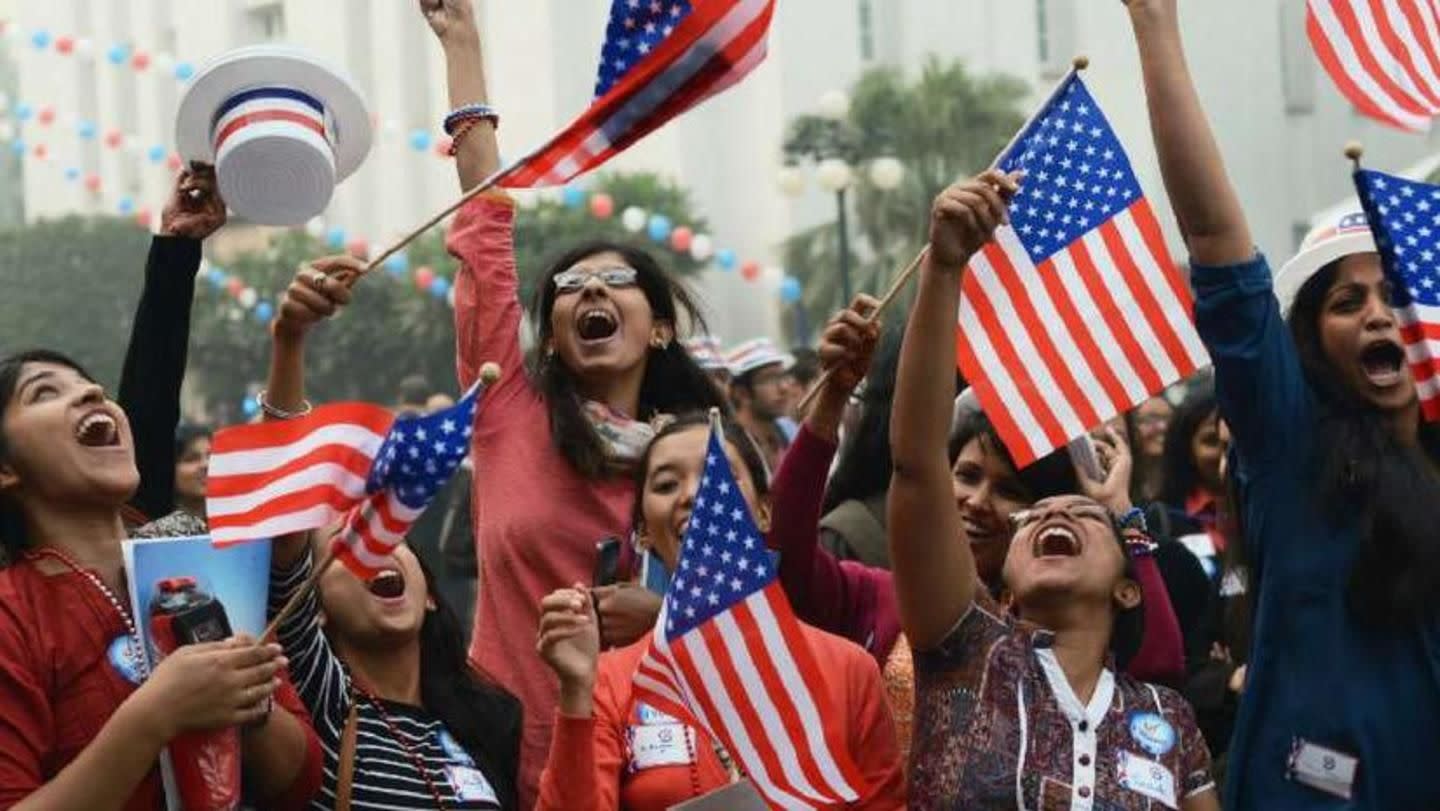What Made 87,000 Indians to Abandon Their Citizenship? A Strong Testament of Inefficiency to the Leadership in India

To be called an Indian is about a concealed umbilical tie with the land which transcends the purview of documents. Nearly 87,000 Indians took the agonizing decision of severing their Indian citizenship this year. The astonishing figures bring the whole picture into question as to what could be the reasons which compelled these thousands of Indians to turn their backs on their citizenship. The year 2022 saw highly alarming statistics of the highest number of Indians renouncing their citizenship since 2011.
The trend of Indians choosing to settle abroad in increasing numbers with every passing year becomes a testament to the government for losing a good number of skilled, educated and potential citizens to other countries which is also referred to as ‘Brain drain’. There are thousands of examples of Indians who made the difficult decision to relinquish their Indian citizenship and have reached the top of the world in terms of profession and excellent lifestyle.
Sundar Pichai, Satya Nadela, Leena Nair, and Parag Agarwal are just a few of the many such examples. Do you think they would still be at this height in a profession as the CEO of the biggest companies if they didn’t make the wise decision of renouncing their Indian citizenship?
This potential loss to the country comes as a consequence of the indictment of the government which failed to fulfil its duties to the people. The intricate threads of sentiments get defeated in the shadow of painful realities and illusionary adequacies. As we peel back the layers of discontent felt by the citizens of India as a whole, we delve into the void of dissatisfaction which is full of suppressive aspirations and broken promises by the government.
Significant Factors That Compel Citizens to Renounce Their Citizenship
Political Instability
The eroding confidence in the governance system of India is a disheartening indication towards the increasing number of departures to foreign citizenships. With political instability on the rise in India, credible leadership has blatantly influenced citizens into accepting the stark reality of a messy coalition political culture. The crooked political landscape in India is leading to a corroding low with high numbers of criminal records under the names of politicians and oppressive leadership.

The statistics disclose 1,293,28 citizens gave up their citizenship in 2014 have risen to 87,000 people already leaving in the first half of 2023. In such a politically unstable atmosphere, it is unsurprising to see citizens seek stability in the areas beyond the periphery of India.
Nepotism
We thrive in a society which nurtures the toxic culture of favouritism and nepotism from politics to education to any other profession whatsoever. No wonder, in such a bemoaning environment where genuine potential takes a backseat, the citizens choose to depart to a place where their true potential is acknowledged. The country unapologetically crushes the aspirations of a normal middle-class citizen under the weight of nepotism.
Nepotism is entangled in a web of other unfair practices and is certainly not an isolated phenomenon. Why would a citizen full of potential choose to fight throughout their life in a country where lineage is above meritocracy?
Loss of Trust in the Judiciary
A sentiment that prevails strongly in the minds of the citizens of India is the loss of faith in the country’s judiciary. The pillar that once used to be out of the purview of corruption and bribery has lost its credibility. The complexities in the judiciary have grown to the core with time, ranging from political interference to inconsistent verdicts.
Reports reveal that nearly 4.7 crore cases stand pending in the courts across various levels of the judiciary in India. Thousands and lakhs of cases, irrespective of the magnitude of seriousness take years to close. Such delay in delivering justice is equivalent to a denial of justice.
The multitude of challenges that exist in the Indian judiciary catalyses the very thought of the citizens driving them closer to the decision of not living in India.
Outdated Education Industry
While the overseas trends in education run much ahead of the outdated system of education in India, it is one of the prominent reasons why foreign countries see a large influx in the form of students and the ones looking for higher education. In a world where overseas universities talk about data science, cyber security, data analytics, fintech, supply chain courses, STEM and Non STEM courses, India is still stuck to the one-size-fits-all approach in education.
India ranks 33rd in the list of World Education System Rankings. Additionally, it is worth noting that not even one Indian institute stands anywhere in the top 100 universities of the world, no IITS, no IIMs. It’s high time that India realises that restricting our youth to pursue mainstream professions of doctors and engineers cannot effectively stop them from moving abroad.
Problems in Healthcare
The ‘Lancet Study and The Economics Survey’ rank India 145 out of 195 countries in terms of quality and accessibility to healthcare. It is highly disgraceful for a country with a population of 1.41 billion to have a standard much below than the bare minimum. Talking of the doctors, poor legislation and laws have consistently created an unsafe environment for them resulting in an stimulated emotion to move to a better working environment. On top of that, India fails to adequately make any growth in the field of medical research or cutting-edge technologies.
Bizarre incidents of careless attitudes in public hospitals continue to float around in the headlines. The inefficiency of a country or of the leadership to provide its citizenry with adequate medical facilities has largely convinced citizens to seek better and more reliable shifts in their citizenship. No wonder, why the out-of-date thought to push the country’s youth into becoming doctors is still highly in demand.
Civil Liberties Under Threat
The current state of civil liberties in India are under constant threat since a couple of years. In a secular country like India, various sects of marginalised and minority groups continue to face difficulties. A report on global political rights and liberties reveals its observation that India has significantly shifted to a ‘partly-free’ nation where the leadership sets a balance between democracy and authoritarianism.
The constant battle to protect one’s family, especially faced by the minority groups of India gives them the idea to choose the citizenship of another country which any day seems to be a more convenient and safer option. Reports reveal that since 2014, there have been 120 cases of cow-related violence, with instances of mob lynching and atrocities on minority communities on the rise.

Jingoism
It is disheartening to see India walk along the lines of toxic jingoism, a nation which once favoured pluralism as its ideal. Jingoism is largely known as ‘chauvinism’ and can be understood as an extreme emotion of patriotism in the form of aggression. As Ramchandra Guha points out, the Hindutva model of nationalism which is not only a threat to the country’s culture, but also the country’s economy. Such an extremist ideology has given rise to a repeated number of clashes increasingly creating an unsafe atmosphere for the non-Hindu community.
Recession and Unemployment
A large chunk of India’s population is crushed under the heavy weight of unemployment. Additionally, under-employment is taking a significant surge in the employment sector of the country. Thousands of overqualified job seekers which include engineers, MBAs, postgraduates, and lawyers are increasingly getting diverted to the idea of moving abroad to win a well-deserved and high-paying job, which a country like India is unable to serve.
The recession has been an alarming threat across the globe. It affects a country’s GDP, employment, income, sales and businesses. The highly educated yet unemployed citizens realise their worth and find no interest in compromising their potential in a country like India. Inspiring examples of billionaires and industrialists who stepped out of the country to gain acknowledgement of the potential, motivate the youth to dream what India is incapable to deliver.
Taxation Policies and Fruitless Returns
Taxes in India continue to act as a termite in the pockets of the common man. From income tax while earning money to GST while spending, a citizen devotes their entire life to paying 30% of their income in the form of taxes. No doubt, taxes are important for the nation to function, what is disheartening is the fruitless and illusionary returns. The country’s standards of public facilities are under serious concern. Hospitals, roads, banks and all the other rights of a taxpayer stand in a questionable condition. For a citizen and an honest taxpayer, such circumstances site an emotion to better belong to a country which utilises their hard-earned money in a thoughtful way.
Communalism
From Nehru to Vajpayee and now to the current leadership, India has seen a transformation in the ideas of patriotism. Christophe Jaffrelot in his book talks about the concerning trend of democracy in India. The extent to which Hindu symbols are protected and other minorities face targeted destruction raises serious questions about the upholding of democratic values.
Examples of fascist treatment by the police in Aligarh Muslim University in the form of violent treatment towards the students and freezing of the accounts of Amnesty International, India are indicating the rising communalism, compromising with the true essence of democracy. The absence of communal harmony is increasingly affecting the very fabric of India, resulting in an exodus of thousands of Indians who seek a safer, peaceful and liberal place to live.
Better Lifestyle and Healthcare
With the increasing feasibility to shift beyond the borders of our homeland, people are looking for better lifestyles and opportunities. In a country like India where the pollution levels reach a PM of 2.5 particles in the air, the condition of roads all across the country are in a terrible state, the outdated technologies and difficulty in doing business are only a few of the many reasons which make India an inferior option to choose in terms of lifestyle standards.
India lags far behind the many foreign countries which provide a fair and reliable judiciary, the latest educational curriculum, high-paying jobs, better facilities in terms of lifestyle, a clean environment, advanced healthcare facilities and a safer place for women and children.

Dual Citizenship
The Constitution of India does not provide for its citizens the liberty to hold dual citizenship. This sets a limitation and becomes a significant factor in forcing people to choose one of the two countries they wish to live in. Unfortunately, a large number of such citizens choose to belong to a foreign country than their homeland. People seeking for global lifestyle and a global convenience to travel, earn and have the luxury of a flexible lifestyle.
The statistics state a stark reminder to the leadership of our country and the policymakers. To understand and uphold the sanctity of democracy, promote fair justice and provide for a peaceful and growth-oriented living to those seeking a better lifestyle and opportunities abroad with a suitable ecosystem to grow professionally. It is highly disgraceful for us as a country whose citizenry is forced to seek solace beyond the borders of their homeland.





